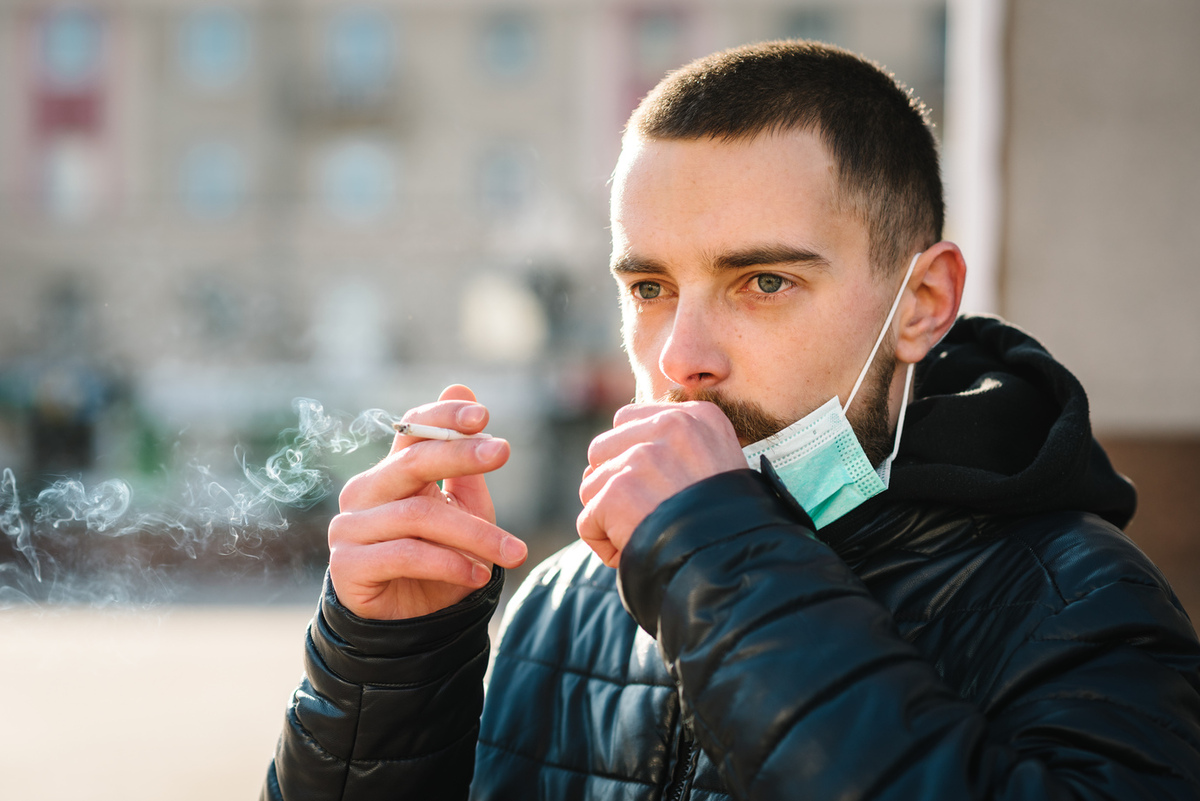Smoking is a hard addiction to kick. Since smokers have a higher risk of just about every respiratory infection under the sun, the coronavirus pandemic might offer an excellent incentive to work on quitting — but news that nicotine could potentially have a protective effect against COVID-19 could just as easily have thrown a spanner in the works.

Let's tackle the elephant in the room: Can nicotine protect you against COVID-19?
As a former smoker, I can confirm that smokers are addicts, not idiots. You know that smoking is four-thousand kinds of bad news. You know that smoking reliably kills, and that smoking still reliably kills many more people than COVID-19 has so far — to the tune of eight million people a year. While many of those tobacco-related deaths are linked to cardiovascular causes, you know that the lungs suffer greatly from smoking, too. As a smoker, you are aware that you don't just have a higher risk of lung cancer and other lung diseases like COPD, but also that you're generally more vulnerable to respiratory infections.
COVID-19 is a respiratory infection. So what's up with news that's been circulated widely, that nicotine might offer some sort of protective effect against the coronavirus? News that has even caused some non-smokers to turn to nicotine patches?
Well, some research (it's out there, look for it if you're interested) has suggested that there's some kind of smokers' paradox. Nitric acid in smokers' lungs might prevent COVID-19 from entering, nicotine could have an anti-inflammatory effect, and the differing immune response in smokers might reduce the risk of a cytokine storm. The current conclusion, courtesy of the British Medical Journal, though? These findings are fascinating, but should be treated with extreme caution.
As of now, the World Health Organization is advising strongly against using these findings to make any medical decisions that deviate from well-established medical science. What that means, in short, is that the COVID-19 pandemic should absolutely not prevent you from quitting smoking in the name of health, and if you don't smoke, it also decidedly shouldn't cause you to buy nicotine patches. Current data indicates that smokers are still more likely to get severe cases of COVID.
Easily-overlooked ways in which smoking, vaping, or using smokeless tobacco could increase your risk of COVID-19
We've all had it drilled into us again, again, and yet again since the outbreak of the COVID-19 pandemic — to decrease our risk of contracting a coronavirus infection, we need to wash our hands often and properly, including after contact with any surface that could harbor the virus. We need to wear face masks, and we need to stay at least two meters away from people with whom we don't share a household.
I can't be the only person to have frequently noticed people taking their masks off to answer their smartphones, which they put to their faces, without previously washing their hands. Smoking, quite apart from being bad for your overall health and your lung health, has the same effect.
It's not hard to see where we're going — say you still go to work at an office, and have a smoke with a coworker. You both have to take your masks off, which increases your risk. Maybe you offer your coworker borrows your lighter. Maybe you give him a smoke, and he touches your pack. Maybe you then use the same unwashed hand to hold and smoke your cigarette. Smoking is a surprisingly social activity, and with COVID-19 in the mix, that's a supremely bad idea.
COVID-19, stress, and quitting smoking
The other dimension is, of course, stress. We've all had a good dose of it during this pandemic, and then some. As a smoker — or since many people using smokeless tobacco products, we'll be inclusive and say "tobacco user" — you'll probably believe that nicotine helps you cope with that stress. That makes right about now a not very appealing time to quit your addiction.
It's often less painful to quit smoking while you're already starting a whole other routine, as many of us are doing right now because of the pandemic. Now is an excellent time to quit smoking, not just because of the Great American Smokeout happening in November, or because nearly everyone is already making big life changes, or because a review of currently available medical data does suggest that smokers have a higher risk of having severe COVID cases and dying from them.
Now is an excellent time to work on quitting smoking, because you're worth it, and there's no time like the present. The sooner you quit, the faster your body can start working on healing the damage. The sooner you quit, the faster you will be free from nicotine, and back in control of your life.


Your thoughts on this